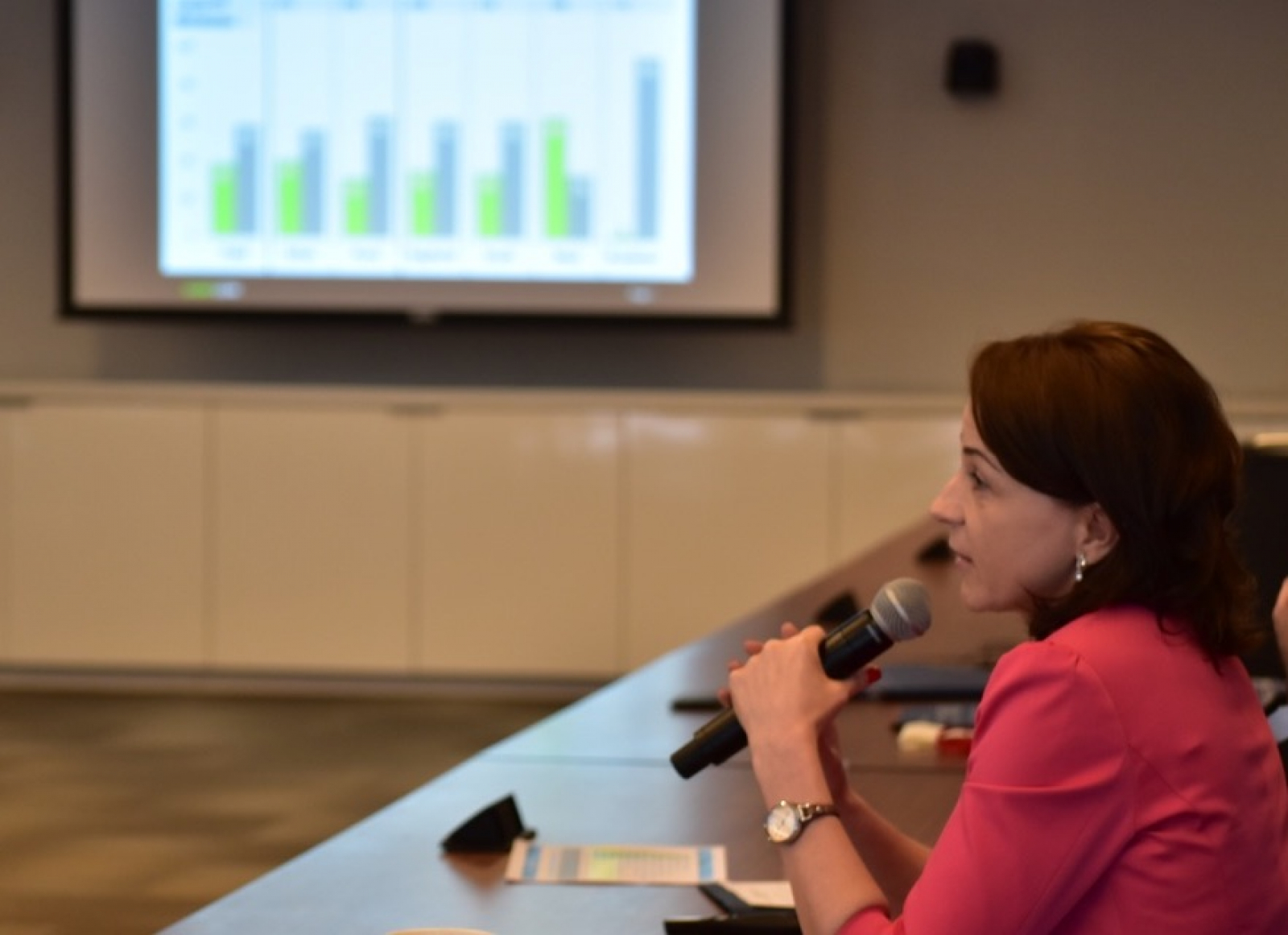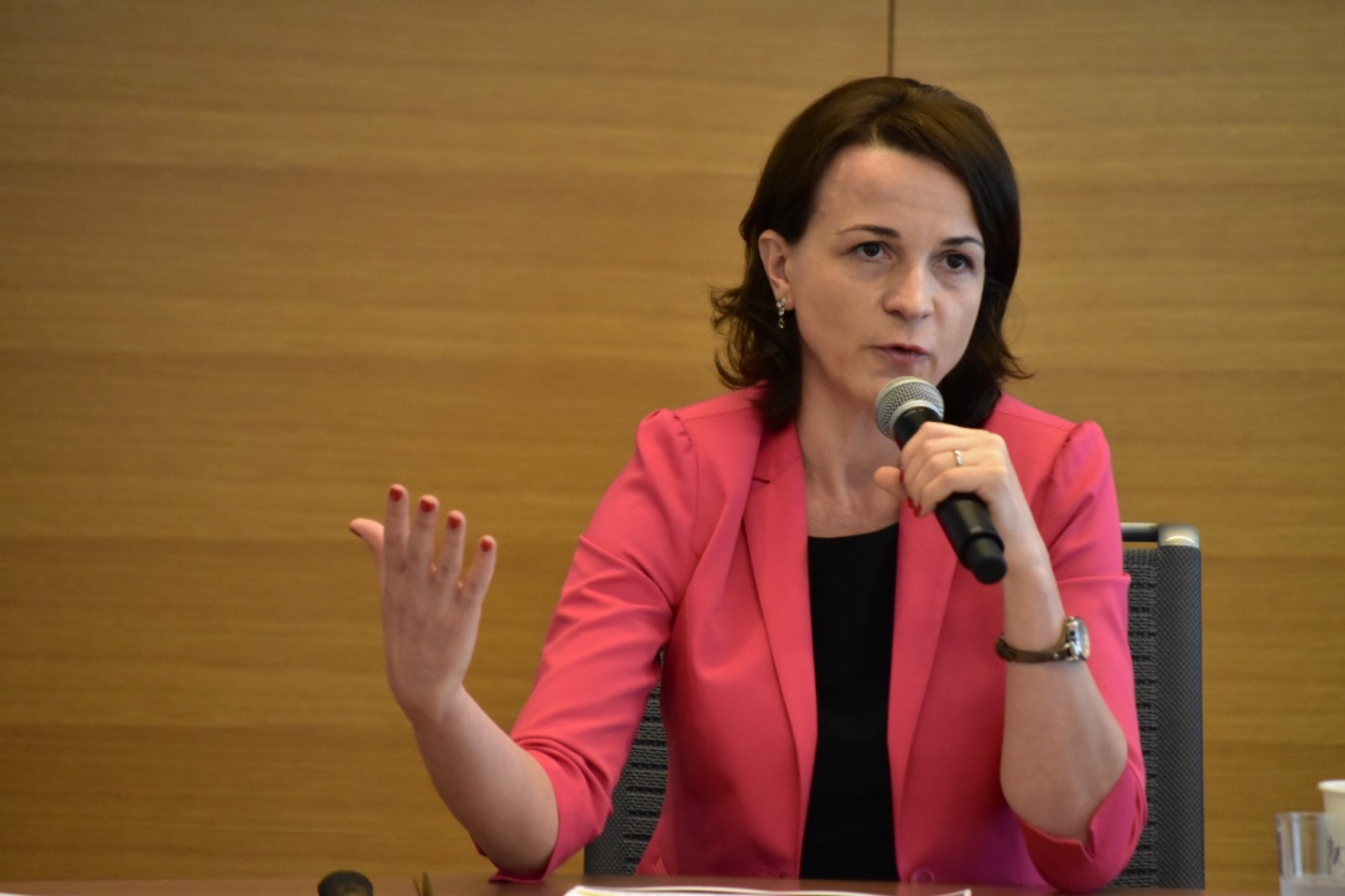
Iraq Resident Director Ancuta Hansen presents findings on Iraq public opinion research at the National Democratic Institute
SHARE
The ongoing liberation of Mosul has generated a sense of renewed unity and optimism as it may bring a dramatic change in the lives of Iraqi citizens. The political elite is called to transform this fragile unity into responsive governance. Iraqis’ demand for inclusive democratic institutions that deliver on citizens’ high expectations has built a rare momentum for national leaders to bridge the sectarian divide and develop a strong vision for the future.
From February to April 2017, NDI commissioned Greenberg, Quinlan, Rosner Research to conduct qualitative and quantitative public opinion research in Iraq, in order to capture citizens’ perspectives on security, the economy, and other political dimensions that are key to post-ISIS stabilization.
The results of the latest polling and focus groups suggest that Iraqis are cautiously optimistic about the future, brought on by military success against the Islamic State in Iraq and Syria (ISIS). Gains in liberated territories have led many citizens to believe ISIS would be completely eliminated within one year and that life in Iraq—especially in the Sunni-dominated West—would improve significantly.
Full Video: Rep. Adam Kinzinger (R-IL) is interviewed following NDI's briefing to members of the Iraq Caucus. The caucus is comprised of war veterans currently serving in the House of Representatives.
In a dramatic shift from previous NDI polls, the Iraqi National Army receives strong job approval from Iraqi citizens, driven primarily by credit for the liberation of Mosul and being perceived as representing all Iraqis—a marked departure from recent years when Sunnis and Kurds saw it as representing only the Shia population. This strong support of the army as a national institution also drives a perception that compulsory military service should be introduced, with a majority of respondents outside Kurdistan in support.
Prime Minister Haider Al-Abadi is viewed favorably by a majority of Iraqis outside Kurdistan, receiving credit for liberation from ISIS, coordination with the International Community and efforts to limit the influence of armed groups. Views on Popular Mobilization Units (PMUs) have also improved, especially in the West. Still, while thankful for their role in routing ISIS, a plurality of Iraqis want PMUs dissolved and integrated into the Army. At the same time, there is mixed support for PMUs’ involvement in politics. Similarly, a majority of Iraqis want the army, rather than PMUs, to protect liberated areas.
Iraq Resident Director Ancuta Hansen presents findings on Iraq public opinion research at the National Democratic Institute
A majority of Iraqis outside Kurdistan want the Ninewa province to remain as is, rather than being granted greater autonomy, while a plurality or Iraqis express a preference for a military governor. Decentralization of political power to provinces continues to have limited public support, especially in the West, as citizens would prefer a strong and inclusive central government. Increased optimism means high expectations for elected leaders to tackle difficult economic and social challenges. This rare time of fragile optimism in Iraq provides an opportunity for good governance to match military success in order to generate enduring peace and stability after defeating ISIS.
Video Exerpt: Rep. Adam Kinzinger (R-IL) praises the work of IRI and NDI, saying "I think we need to understand that investing in...groups like IRI and NDI is way cheaper than buying a GPS guided bomb to take out a target, and any time we can do conflict mitigation to prevent war from happening that's a way better deal for the taxpayers and frankly it's way better deal for humanity."
NDI has been conducting qualitative and quantitative research in Iraq since 2003. This round of research was funded by the National Endowment for Democracy and the U.K. Foreign and Commonwealth Office.
Read more on NDI's work and public opinion research findings on Iraq and NDI's Focus Group Findings Report, where NDI conducted 12 focus groups with citizens to gauge support for national institutions and gather expectations about post-liberation governance



